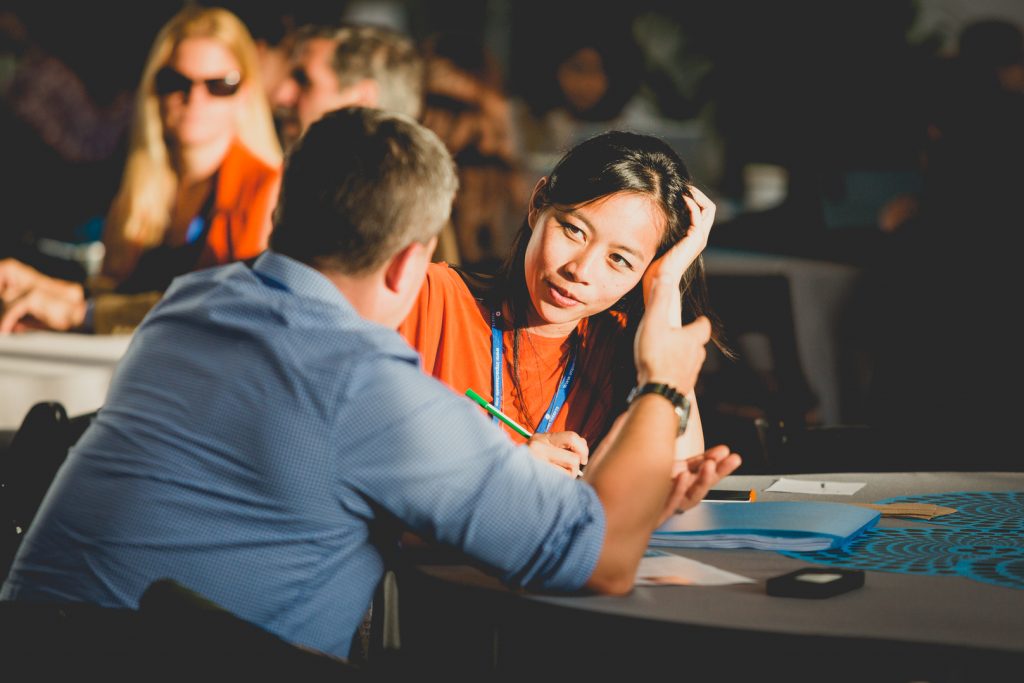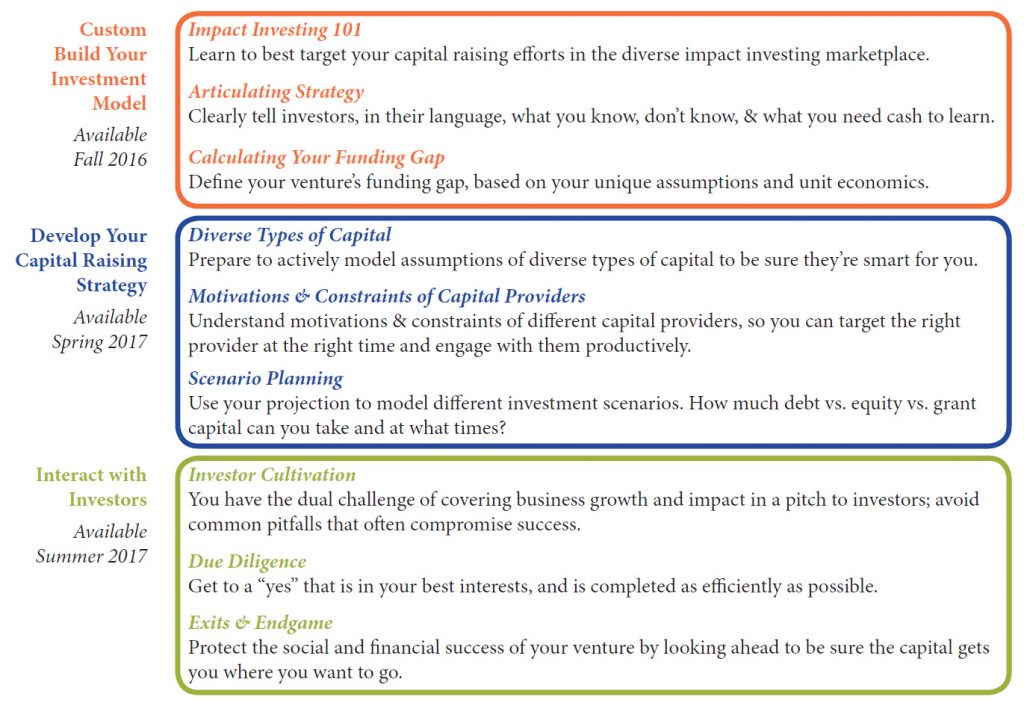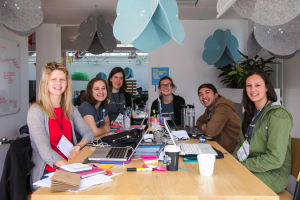It is the second full day of the conference at the intersection of money and meaning and momentum is building. Here is some of the amazing programming that will be happening around the SOCAP16 campus today.
Thursday Morning Plenary
Come to this morning’s plenary to hear from established leaders and emerging voices from the worlds of impact investing and social enterprise on new pathways being blazed in the areas of cleantech, equity and inclusion, and sustainable supply chains.
- Ross Baird, Executive Director Village Capital
- Ashara Ekundayo, M.A. Co-Founder, Chief Creative Officer Impact Hub Oakland
- Kevin Jones, Convener, SOCAP
- Dawn Lippert, Director, Energy Excelerator
- Deval Patrick, Managing Director, Bain Capital Double Impact
- Rick Ridgeway, VP of Public Engagement, Patagonia
- Garima Sahai, Co founder & CEO, Svadha WASH Private Limited
- Jim Shelton, President, Chan Zuckerberg Education
- Reuben Teague, Director, Prudential
- Monique Villa, CEO, Thomson Reuters Foundation
LATAM@SOCAP16 Investment Roundtables
Agora Partnerships will be hosting Investment Roundtables for 11 high-growth entrepreneurial leaders who are creating social and environmental impact in Latin America and the Caribbean. All entrepreneurs participating in the Investment Roundtables at LATAM@SOCAP are graduates of the 2016 Agora Accelerator.
Investors are invited to sign up to join a small group of other interested investors to participate in a one hour intimate discussion with an entrepreneur facilitated by Agora. Sessions will be taking place between 9:30 AM and 4:30 PM. Investors will receive an overview of the business and impact models, growth and operations strategy, as well as capital needed to achieve their vision.
Learn more or register for the LATAM@SOCAP16 Investment Roundtables.
Wine Down and Local Meetup
Thursday Wine Down from 5:30 PM to 6:30 PM. This on-site happy hour is hosted by Impact Hub and SOCAP 365. Connect with fellow attendees from your local community or use Pathable to organize your own.
Meet the SOCENTs of SOCAP
If you have not yet had the opportunity to get to know some of the entrepreneurs that have come to SOCAP from around the world, make sure to visit the Big Top Tent today. There you can see samples and purchase products from the Innovation Showcase and Marketplace. The #SOCENT Central lounge in the Big Top features a lounge and seating area for conversations as well as profiles of over 150 SOCAP Scholarship Entrepreneurs.
Final Day for Free Headshots
If you have not stopped by the Faces of Founders SOCAP Photo Booth in Festival Pavilion, visit between 9:00 AM and 6:00 PM today to share your story and get your headshot taken. The Case Foundation and Blackstone Charitable Foundation are sponsoring this booth and the new Faces of Founders campaign to help make entrepreneurship more inclusive.
To learn more about efforts to level the playing field for all entrepreneurs attend the session Am I an Entrepreneur? Challenging the Stereotypes on the Festival mainstage at 4:00 PM. Speakers include Sheila Herrling, SVP of Social Innovation from the Case Foundation, Blackstone Charitable Foundation, 500 Startups and Zuvaa African Fashion.
Live Demo of the Measure What Matters B Impact Assessment Tool
For those who are interested in impact measurement or currently using the B Impact Assessment Tool, Come to C230 today between 4 PM and 5 PM to see a live demo of the latest version of the most widely used impact management tool. This tool is funded by the impact community and is used to create high quality jobs, strengthen communities, and preserve the environment. Speakers include Kate Ahern, Director, ESG and Communications, Bain Capital; Eric Edelson, CEO, Fireclay Tile; Carla Heim, Senior Advisor Social Entrepreneurship, BDC; and Hardik Savalia, Program Manager, B Lab.
Thursday Self Organized Community Discussions
OpenInvest Beta Launch Lunch 12 PM to 1 PM at Festival Pavilion Yellow Tables
Impact Investor Lunch 12:15 PM to 1:15 PM at the Big Top Tent
Mobile Technology in Africa and Asia 4:30 PM - 5:30 PM at the General’s Residence.
Find out more information on these community discussions on Pathable or speak to the Host to add your own.





